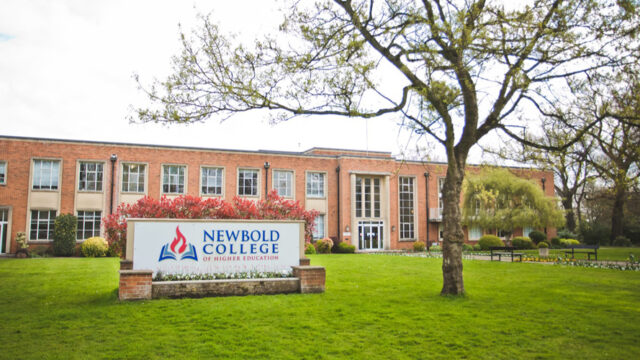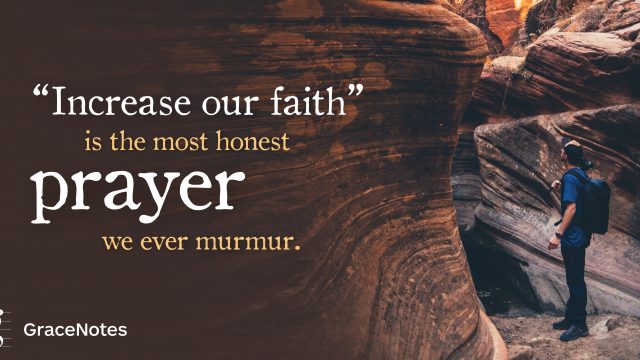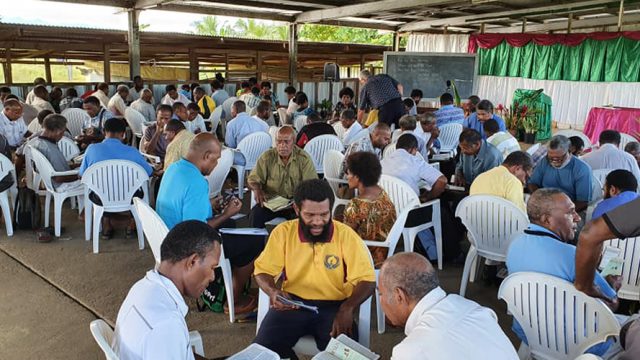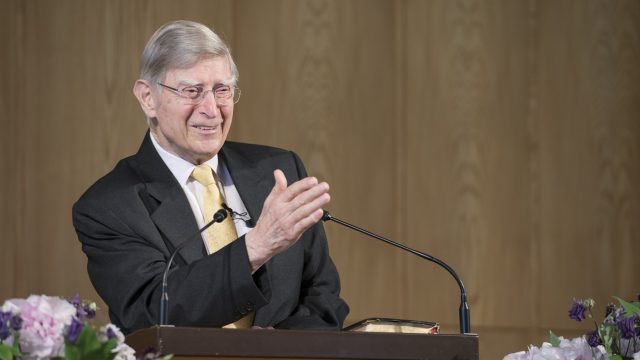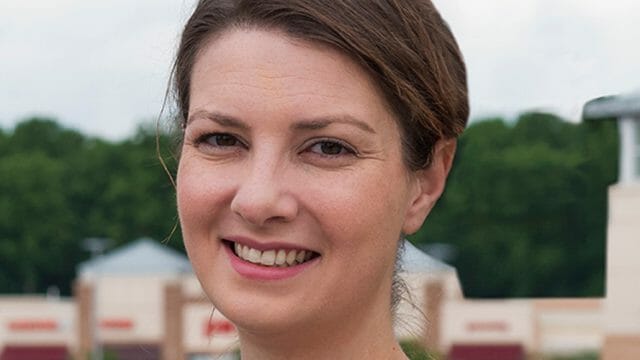Renowned Seventh-day Adventist scholar died on February 15, 2020, at 87.
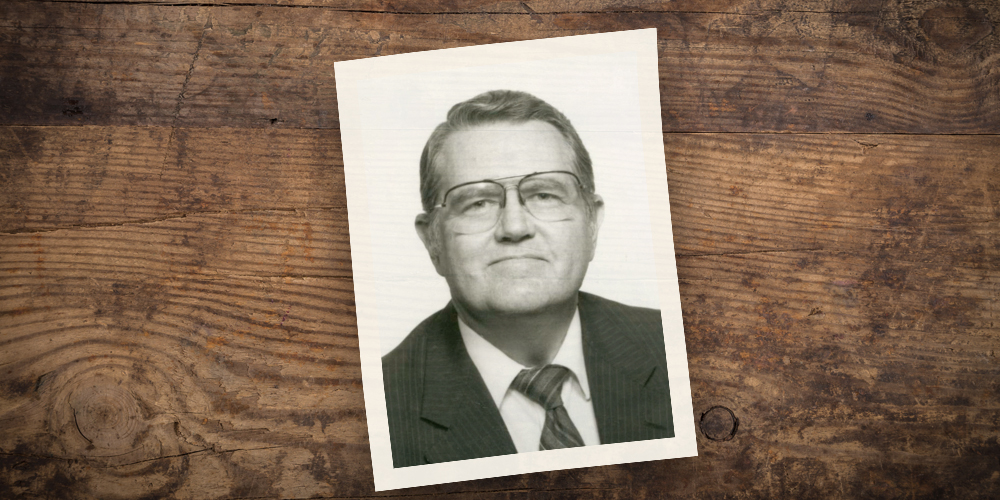
Renowned Seventh-day Adventist scholar William Shea died on February 15, 2020 in Manassas, Virginia, United States, at 87. A medical doctor and surgeon as well as graduate of Harvard University and the University of Michigan, Shea brought to the world of biblical studies the acute intelligence of the diagnostician in the emergency room and the broad information of the historian and of the linguist proficient in several Semitic languages. Shea published hundreds of articles and several books dealing with various topics ranging from ancient inscriptions to the meaning of Bible prophecy. In this condensed version of an interview first published in 2015, now retired Biblical Research Institute director Ángel Manuel Rodriguez asked Shea about his career, contributions, and the role the Bible has played in his life.—Editors
As a medical doctor, what influenced you to abandon that career, which was your first choice, to concentrate on Bible studies? Could you share the journey which brought you to this interest?
As a child, I grew up with almost no religious influence at all. Finally, during my last year in high school or secondary school, I came to believe in the divine inspiration of the Bible. When I went to college, I studied both courses in religion and science, since I had an interest in both. I finally decided to make medicine my vocation and religious studies my avocation. When I finished my medical studies, I went to two different countries outside of the United States to practice my profession because I felt that I might be able to do more good in areas where medical care was not so readily available. Those two countries were Nicaragua and Trinidad. During my work in Trinidad in the West Indies, there was a Seventh-day Adventist denominational junior college a half an hour drive from the hospital in which I worked. They were short of teachers in the religion department, so I volunteered. My particular interest was history during the period of the Hebrew Bible and the light that archaeology can shine upon it. I taught at that junior college for over two years.
While I was doing this teaching stint, I decided that if I was to do more of this, I would need to become better qualified in the field, so I spent three years at the Harvard Divinity School studying Hebrew Bible, language, and related subjects. While I was there, I received an invitation to join the faculty of the Seventh-day Adventist Theological Seminary. I taught there for a total of fourteen years before I accepted to work for the Biblical Research Institute. My “pilgrimage” into biblical studies was a slow and gradual one to finally come to the place where I am today.
What is your method, or for you, the best method to read the Bible? Could you give the reader a few recommendations on how to read the Bible?
There are two main ways to read the Bible. One is an intensive scholarly way. For that approach, I use what has been called the historical-grammatical method. This means that the reader must pay close attention to the analysis of the words present in the original language. The historical setting and the literary structure of the text must also be taken into account. Of course, many scholarly tools can be used for such a purpose. These include concordances, dictionaries, commentaries, and encyclopedias.
The average reader may not wish to go into such depth. In that case, one can read simply for personal devotional or spiritual benefit. One way in which to read the Bible for this purpose is to read the passage or book that one is delving into several times. Each time it is read, more will appear of meaning to the reader. Also, as one reads, one should look for keywords. These are the words that are used more frequently in the passage. The Bible writer has used these words over and over again because he wishes to emphasize them. One can take each of these occurrences and see just how the term is used in each case. That will give the reader an idea of the range of meaning in these words. All of these different avenues lead up to the idea that this is God’s Word, and through it, He is speaking to us.
What is the Bible for you as a person, as a Christian?
To me, it is the Word of God; God’s thought made audible — or legible — to me individually. It also tells me where I, as an individual and we as a people, as biblical Israel or the church, have been and are going. Thus the Bible is multifaceted in its application to our lives. It tells us about our past, present, and future. Since so much of the Bible is history, it has been said that the Bible is the record of God’s Mighty Acts. Since He acted on behalf of His people like that in the past, we can rest assured that He can also act that way in our own personal lives. In that way, He can show us the road to salvation.
I believe that the Bible is the objective revelation of God. This means that the Bible is true, whether I have an experience with it or not. We may believe the Bible, or we may choose not to believe it; but from an objective point of view, it is still true regardless of the attitude of the reader.
You have extensively written and lectured in the field of biblical studies; in a few words, could you delineate the nature of your contribution in that domain?
My particular interest, as I mentioned above, has been in the area of history and archaeology as it has related to the first and second temple periods. I am interested in biblical history, and I am interested in the history of the Ancient Near East, especially in Assyria, Babylon, Egypt, and Canaan. I am especially interested when these two main disciplines converge. To take but one simple illustration, something like eight kings of Israel and Judah are mentioned in Assyrian inscriptions, and about the same number of Assyrian kings are mentioned in the Bible. It is not just that they are mentioned by name, but the text also tells us what these individuals were doing. Second Kings 18-19, for example, tells us of an encounter of Hezekiah with the Assyrian king Sennacherib. Sennacherib’s inscriptions tell us about Hezekiah and what he also did. Thus these two pieces of evidence can be fitted together to fill out the whole picture. These are the kinds of things that I like to study and write upon.
What arguments would you like to share which “prove” for you that the Bible is, indeed, the word of God?
There are many answers to this question, but only one that will ultimately tell the tale to an individual, that of personal experience. The Bible is consistent from beginning to end in terms of the themes that it develops. Could this really have happened with 20, 30, or 40 ordinary human writers who worked and wrote over a thousand years? I don’t think so. I believe in the property of predictive prophecy, and I believe that it is manifested in the Bible. Why isn’t the Assyrian nation live among the nations of the world at this time? If it were, it would prove the predictions about its final fall as wrong. Nevertheless, the Bible is still true in what it says about the absolute end of Assyria. Assyria was so thoroughly destroyed that men of modern times did not even know where its capital of Nineveh was located. It was completely lost from the collective memory of mankind until it was found again in 1840.
There is also the historical accuracy of the Bible. All of the wonderful inscriptions and reliefs and statuary that have been turned up from the ancient nations have contributed to tell us more about the world in which the people of the Bible lived. Sometimes they tell us directly about specific events in the Bible. Nebuchadnezzar’s Chronicle, for instance, tells us that he conquered Jerusalem in the year 597 BC. It even tells us the date upon which that event happened, 2 Adar in the Babylonian calendar, or March 16 in our calendar.
But the most important evidence for the Bible is the changes that it makes in the lives of people. I think that it was the philosopher Pascal who said, “The miracle of God is every believer.”
What are the great truths that the Bible has taught you?
Well, it has taught me many things, and none of them should be minimized. But I suppose that two elements that I would pick out to emphasize here are that God is our Creator and that He is our Redeemer. Just as God created the world at the beginning, so He has created us through the processes that He set in motion at that time. The Bible also tells us that mankind is lost. It is lost through the fall. Therefore, we need to be redeemed back from evil. All of this we can find in God. Also, the Bible teaches us how to live.
What does the Bible bring to you in your daily life?
To start with, it provides the answers, as no other human document does, to the three great questions of life: Where did we come from, what are we doing here, and where are we going? What that means is that the Bible gives the greatest meaning to life. In addition, it can provide internal spiritual peace. The poet speaks about a time when “all about you are losing their heads and blaming it on you.” Even in such times, the Bible believer can have peace. And it seems with the hurried pace of today’s society that there are more and more such times. Through faith in God’s Word, I have found peace.
The original version of this story was posted by the Shalom Learning Center and also published in Shabbat Shalom magazine.


